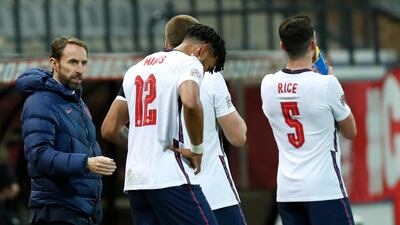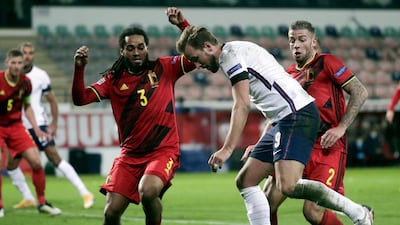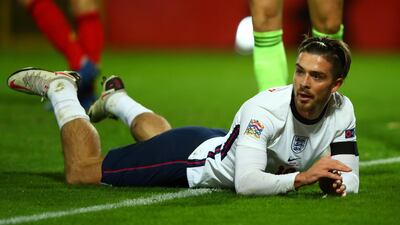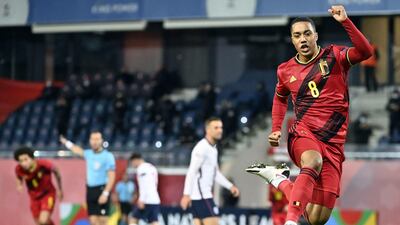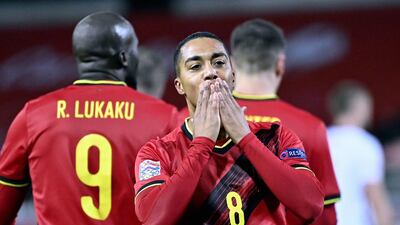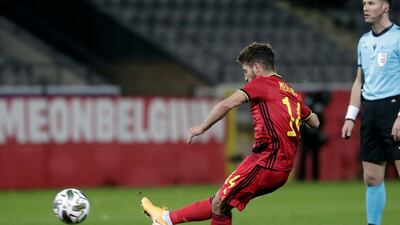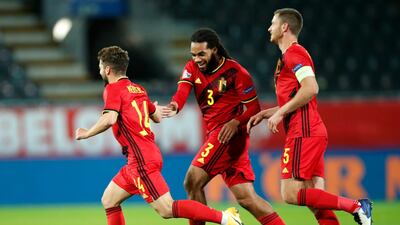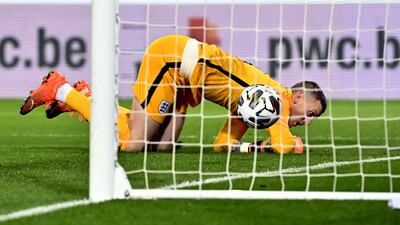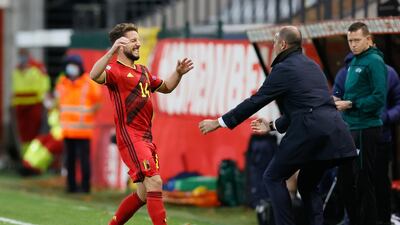England have gone from the most prolific to the least. Their average of 4.62 goals per game in Euro 2020 qualifying was unrivalled. It is now down to 0.6 in the Nations League, the joint lowest in the top tier.
If one campaign has produced 37 goals and another three, it speaks in part to the superior standard of opposition in the Nations League.
It highlights the circumstances that have hampered England, who looked rusty in September, have been patched up throughout the campaign and were deprived of Raheem Sterling and Marcus Rashford, two who might have injected incision, in Sunday’s 2-0 defeat to Belgium.
It reflects, though, on the systemic switch from 4-3-3 to 3-4-3, the sacrificing of the side’s designated attacking midfielder to add another centre-back, both despite and because too few of the candidates are fully convincing.
Gareth Southgate has suggested there will be no return to the shape that rendered England more entertaining and open.
In a way, the loss in Leuven supported his argument. England conceded twice to long-range shots, one deflected, one a contentious free kick. They have only let in two other goals, both penalties, in 10 games.
Away from home against the planet’s top-ranked team, they only conceded one clear-cut chance inside the penalty area, when Jordan Pickford made a fine second-half save from Romelu Lukaku.
Defences tend to win tournaments. The five World Cup winners this century conceded a combined total of 17 goals in 35 games en route to glory. The last four European champions let in 13 in 25 matches between them. Southgate has become more ambitious in his rhetoric, talking of England wanting to beat and be the world’s best, and more defensive in his tactics.
The strategy is underpinned by fact. There is a logic, too, to rationalising that England’s gifted group of attackers will continue to create chances and that, in games of fewer opportunities, they have the prowess in front of goal to score enough, even if has not been supported by their sterility in the Nations League.
________________________________________________________________
Belgium v England player ratings
________________________________________________________________
That Rashford has only played 162 minutes of a possible 450 and Jadon Sancho just 153 is a factor. England have often been shorn of sharpness. On Sunday, they lacked the speed required to complement Harry Kane. When the captain dropped into midfield, they needed fast runners to go beyond him and, with Sterling sidelined and Sancho benched, they had none.
Jack Grealish was rightly lauded for a display of confidence and impudence, dribbling and one outrageous flick. He has shed the status of a cause celebre by winning over Southgate. The question no longer feels if Grealish is in the final squad, but if he is in eventual team.
The issue lay in the balance of the front three. Grealish and Mason Mount had argued they can play together, but it requires the Chelsea man to operate in a midfield berth. Grealish made one predator’s run, across the box, to draw a save from Thibaut Courtois but he is not a natural inverted winger; Sterling, Rashford and Sancho offer the promise of more goals.
And should Grealish leapfrog into the starting 11, it leaves Southgate with a choice of only one of the other three and a potentially lopsided front trio, with the man on the right often the most advanced.
It comes back to a systemic change devised when Grealish was a fringe figure. Either 4-3-3, 4-2-3-1 or 4-2-1-3 could accommodate him, Kane and two wingers. But it strips England of their third centre-back at a point when their quickest central defender, Joe Gomez, is out. For Southgate, the decision is between defence and attack, caution or audacity.
